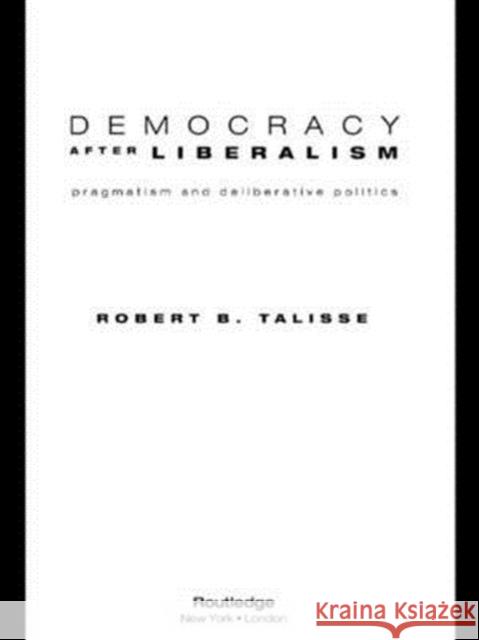Democracy After Liberalism: Pragmatism and Deliberative Politics » książka
Democracy After Liberalism: Pragmatism and Deliberative Politics
ISBN-13: 9780415950183 / Angielski / Twarda / 2004 / 176 str.
Democracy After Liberalism: Pragmatism and Deliberative Politics
ISBN-13: 9780415950183 / Angielski / Twarda / 2004 / 176 str.
(netto: 740,24 VAT: 5%)
Najniższa cena z 30 dni: 705,23
ok. 16-18 dni roboczych.
Darmowa dostawa!
Can a democratic society propose an account of its practices and institutions that is at once adequately robust to answer antidemocrats and sufficiently inclusive to ein the assent of citizens who disagree about philosophical, moral, and religious essentials? A robust theory will draw upon controversial philosophical premises, and will thereby fail to respect the deep plurism characteristic of a free society. Anything less than a robust philosophical theory, however, will raise questions of why anyone should prefer democracy to mild oligarchy or peaceful tyranny. In Democracy After Liberalism, Robert B. Talisse critically evaluates liberalism, the dominant attempt in the tradition of political philosophy to provide a philosophical foundation for democracy. Combining recent work on deliberative democracy with C. S. Peirce's pragmatism, Talisse argues for an epistemic conception of deliberative democracy to meet this need. Although the resulting view is not liberal, it eschews the problems confronting communitarianism by insisting that the formative role of the state is epistemological rather than moral.











